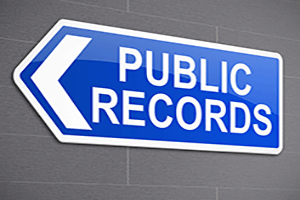Miami Dade County Public Records
With a copious amount of public records available online, it can be somewhat complicated to locate the Miami Dade public record you are looking for. This guide aims to simplify that process by providing a comprehensive overview of how to conduct a Miami Dade public records search from the various government agencies. We'll delve into the types of records available and how to access them online. We'll also discuss Florida's public record laws and their impact on your search.
Understanding Florida Public Record Laws
Florida's public record laws are founded by the national Freedom of Information Act, which focuses on the principle of transparency in government actions. They ensure that citizens have access to information about their government's activities and can view the information they collect on their citizens. The Florida Sunshine Law is a key piece of the state's legislation in this regard, as It mandates that all government meetings and records are open to the public.
However, there are exceptions to accessing publicly available information. Certain records are deemed confidential or exempt, and are therefore not accessible. Some resources are sealed for privacy reasons and others may be redacted or expunged from public view. Understanding these laws is important to successfully performing a Miami Dade public records search.
Types of Public Records Available in Miami Dade
Miami Dade County holds a vast array of public records that span various categories and are held by different government agencies. Some of the most commonly sought records include court records, property records, and vital records. Each of these categories contains specific types of documents. For instance, court records may include case files, dockets, and judgments. Property records often encompass deeds, tax information, and property appraisals. Vital records typically consist of birth certificates, death certificates, and marriage licenses.
Here's a brief list of some of the most public records sought after in Miami Dade County:
1). Court records: These may include dockets, court proceedings, civil and criminal court records, convictions, and sentencing records.
2). Property records: Encompass deeds, tax information, and property appraisals, and property sales history.
3). Vital records: These are records of life events such as birth records, death records, marriage and divorce records.
4). Criminal records: These can include criminal convictions, misdemeanors, active warrants, incarcerations, probation and parole orders.
5). Business licenses: These include both LLC and S-Corporation licenses, DBAs, Corporates filings, profit and loss statements.
6). Driving records: Driver records, driver license points, driver history abstracts, DUIs, DWIs, traffic citations and suspended licenses.
7). Financial records: Can include bankruptcies, tax liens, corporates profit sheets, and corporate loans and balance sheets.
8). Vehicle records: Motor vehicle records,vehicle recalls and safety issues, odometer readings, vehicle title information, vehicle history reports
9). Meeting minutes: These cover government agencies meeting minutes and agendas, planning and coding changes, and government contracts.
10). Incarceration records: These are records of a person's convictions and incarcerations in jails and prisons, including sentencings and inmate records.
How to Run a Miami Dade Public Records Search
Conducting a Miami Dade County public records search starts with identifying the type of record you need. The next step is to determine the government agency that holds the record. For instance, court records are held by the Miami Dade Clerk of Courts, while property records are with the Miami Dade Property Appraiser's office. Once you've identified the agency, visit their website or office. Many agencies have online portals where you can conduct a records search. If the record isn't available online, you may need to submit a public records request. This can often be done via email, fax, or in person.
Here's a simple step-by-step guide to access the records you want:
Identify the type of record you need.
Determine the government agency that holds the record.
Visit the agency's website or office.
Conduct a records search via the online portal, if available.
If not available online, submit a public records request.
Accessing Records from Miami Dade Government Agencies
Different government agencies in Miami Dade hold different types of records. For instance, the Miami-Dade Police Department provides criminal records. The Miami-Dade County's official website is a good starting point. It provides links to various agencies and their records. Remember, some records may not be available online. In such cases, you may need to visit the agency's office in person. Always check the agency's website for specific instructions on how to access their records.
Tips for Making a Public Records Request
When making a public records request, be specific. Include details like names, dates, and types of documents. This helps the agency locate the records faster. Understand that some records may come with a fee. Check the agency's website for information on potential costs. Lastly, be patient. Some records may take time to retrieve, especially if they are older or not digitized.
Handling Denials and Understanding Public Record Exemptions
If your request is denied, don't panic. You have the right to appeal. Check the agency's appeal process and follow it. Understand that some records are exempt from public access. These may include certain law enforcement and court records, or records that have been sealed for privacy reasons.


